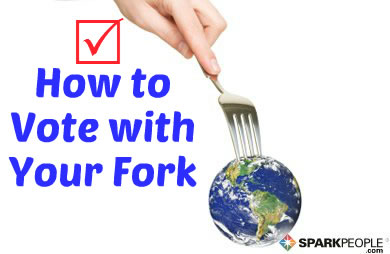|
This blog is the second half of my personal response to TIME’s recent article on “Why Exercise Won’t Make You Thin.” In my last blog, I talked about the biological relationship between exercise and fat loss; here, we’ll be looking at whether there’s any truth to the claim that exercise causes excessive appetite and “compensatory” overeating, making fat loss more difficult. For those of you who like to cut straight to the bottom line, my answer to this question is: No. There’s really no reason at all for you to be afraid of exercise if you want to burn fat and lose weight. Just the opposite, in fact. You will need to make sure your meal plan is right for your activity level and weight loss goal, and then stick to that amount of eating as well as you can. But exercise is simply not going to turn you into someone who can’t control your own appetite and eating behavior—unless, of course, that’s what you expect or want it to do. For those of you who like to know more about the nuts and bolts, read on about the “soul of success”, and find out what can help you stay in charge of your eating no matter how much you exercise. The Soul of Success By soul I mean…a perspective rather than a substance, a viewpoint towards things rather than a thing itself. This perspective is reflective; it comes between us and events and makes differences between ourselves and everything that happens. Between us and events, between the doer and the deed, there is a reflective moment—and soul-making means [claiming] this middle ground as your own. --James Hillman, Re-Visioning Psychology My reason for bringing the concept of “soul” into this discussion is not to introduce religion into the picture here, but simply to emphasize the point that we human beings come from the factory equipped with accessories that make it possible for us to manage our own impulses and appetites, instead of being managed by them. This perspective is notably and unfortunately missing from the TIME article, which discusses the research on exercise and eating as if the exercise necessarily causes compensatory eating. That’s not what the research actually says—it just demonstrates a relationship between increased exercise and increased eating, not that one causes the other, or that exercise leads necessarily to overeating. The S-O-R Model of Human Behavior. Mainstream psychology has recognized for many years that, for us humans, the relationship between a stimulus (like hunger, or the sight, smell, or taste of an edible substance) and the response (eating or, in this case, overeating) is neither direct nor automatic. Between the stimulus (S) and the response (R), there is an organism (O) that is capable of formulating goals, learning from its own experience, and adjusting both its environment and its own behavior accordingly. That Organism would be you. This learning and adjustment happens all the time, regardless of whether we are aware of it or not. Over time it leads us to develop regular patterns of thought and behavior that we usually refer to as “habits.” The more aware we are of this process, the more we can shape our own habits to suit our goals. Habits are made up partly of innate biological “imperatives” (hunger--we need to eat), partly of natural preferences (sweet, salty, and/or rich foods taste better to us), and partly of learned associations (food X gives me pleasure and/or energy). Individuals differ somewhat in which of these elements are experienced as most compelling or rewarding—for some, a “sweet tooth” may be just a mild preference, while others experience it as almost a craving. These differences also are caused by a combination of biology and experience/learning, which means that to a large extent, even strong cravings can be consciously managed, and even long-standing habits can be changed. One simple way to think about all this is to remember that there is a difference between hunger (our biological need for nutrients) and appetite (our preferences for particular foods, based on experience and habit). We may need glucose to replace the fuel our exercise has used up, but we don’t have to get it from large blueberry muffins with way more calories than we need. And it’s just not possible to be born with a craving for chocolate, despite how it seems sometimes. Even chocolate is a habit that has to be learned—and can be unlearned. Unfortunately, we don’t seem to have a built-in nutrition regulator which lets us know when we’ve had enough of each specific nutrient we need to keep ourselves healthy and fit. Or a junk food detector that would let us know when what we’re eating is triggering our preferences but not offering much that we actually need. These would be really handy in a food environment like ours, which routinely produces and markets nutritional nightmares like the Twinkie, and makes obsession with body size and shape seem "normal." This means we have to put some effort into learning what we need to know and into making good choices. It’s not fun, it’s not glamorous or exciting, but it can be done and it doesn’t take superhuman will power. It can even be rewarding and pleasurable in itself, especially if you can give it some personal meaning beyond the number on the bathroom scale. And that brings us back to the business of soul-making. Soul-making is not the same thing as will power or self-control. It’s not about making yourself do something you don’t want to do, or avoid something you do want to do. Those are both things we really do have a pretty limited capacity to be good at or consistent at, as mentioned in the TIME article. Soul-making is more about learning what you really need, and training yourself to want what you need, instead of just reacting to whatever might be in front of you at the moment. It starts when you begin to acknowledge that it’s YOU who makes decisions and takes action, not your genes or your circumstances, and certainly not the exercise or the food itself. Soul-making picks up momentum when you start curbing all your negative self-talk and verbal self-abuse about how weak or imperfect you are, and start listening to yourself instead of lecturing yourself. This frees up some room in your mind where something worth learning can come up. Once you’ve got your internal soul-making space cleared of all that conditioned garbage, all you really need to do is stop for a moment before you act, and ask yourself: “What do I really need and want right now? What will make me feel better after I'm done eating it?" This will help you establish communication with your real self, instead of the conditioned self the food, diet, and beauty industries want you to be. Once this happens, soul-making can move on to its next task. That’s the task of re-engineering your daily life so that, as much as possible, what you really need is readily available to you, and you don’t have to constantly fight temptations or go way out of your way to get it. In short, soul-making is about spending your energy on becoming more fully who you are and who you want to become—not just on fighting your conditioned behavior. One of the great ironies when it comes to changing habits is that you have to accept yourself where and as you are first. This isn’t easy in an environment that seems to constantly pressure and reward you for being something other than who and what you are—but, again, it can be done. It will probably take the support of some fellow-travelers. And lots of patience with yourself and others. There are lots of practical things you can do to help yourself down this road, but I don’t have room here to talk about many of them. SparkPeople has a 10 Step Program that can help you with this, and any good book on practicing Mindfulness or a similar topic will be full of them. For me personally, exercise is one of those practical things—a very big one, in fact. It’s when I’m out riding or hiking that I have the time to think about this kind of stuff, look at where I stand, and really get more into my body, which seems to know a lot more about what I really want than my head does, most of the time. So, I guess I could say that exercise does increase my appetite, but not just for food—for learning more about who and what I really am, what floats my boat, and how doing the best I can with what’s in front of me makes me feel better than any number on the scale or my calorie tracker. And as long as I feed these hungers along with my physiological hunger, my eating and weight tend to take care of themselves pretty well. It's when I count on eating to satisfy one of these other hungers that I get into trouble. What about you? What helps you stay mindful of what you really want and need, and avoid mindless eating? |
Popular EntriesMore From SparkPeople
|















